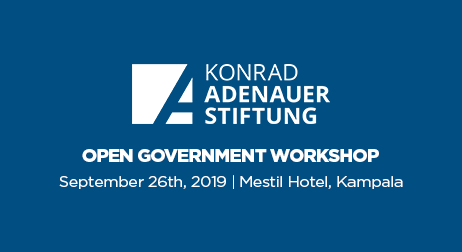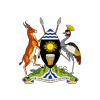The Government Citizen Interaction Centre (GCIC) in partnership with Konrad Adenauer Stiftung is convening a workshop on the theme, Building capacity to enhance efficiency of Government - Citizen Interaction. The focus of the workshop will be on how to harness “Open Government” for delivering equitable development outcomes.
The workshop is being organised for key government communicators, in accordance of Article 41 of the Constitution of Uganda prescribes that; “Every citizen has a right of access to information in the possession of the State or any other organ or agency of the State except where the release of the information is likely to prejudice the security or sovereignty of the State or interfere with the right to the privacy of any other person”.
The workshop comes at a time when the Government of Uganda is re-invigorating citizen engagement in monitoring of public services, to deliver services to its citizens, and enable a more vibrant citizen-government engagement. A collaborative engagement between citizens and government, and providing easy access to information and accountability is one way of achieving increased democratic governance and accountability.
Even more important, besides enhancing accountability, the availability of public information to Ugandans is one way government can educate its citizens in both formal and non-formal settings about its processes and/or services. This in the long run establishes a bond between, on one hand, an informed public and on the other a more open, accountable and responsible government.
Expected Outputs
The workshop will deliver these primary outputs:
- Improve the ability of MDAs to deploy digital and social media solutions that increase access to innovative solutions for more citizen-government interactions;
- To equip the general public with capabilities to utilize open data digital platforms to engage with, and obtain services from government agencies;
- To conceptualize avenues and channels available to government to enable open data platforms to provide open access to information and documentation for use in research, media use, and general access by citizens

Objectives of the workshop
The Government of Uganda, through Ministry of ICT & National Guidance, GCIC, seeks to engage with Ministries, Departments and Agencies (MDAs), the private sector, media, Non-Governmental Organizations (NGOs), civil society and development partners to seek new ways of harnessing open government initiatives that enhance the efficiency of government-citizen interaction.
With the view of ensuring active participation in government provision of services, a more open access to information, services, and robust participation in decision-making processes, GCIC will primarily leverage its digital communication capabilities to ensure authentic and user-friendly platforms that enable appropriate and timely citizen-government engagement, to ensure that information and feedback reaches the beneficiaries in a timely manner.
Open Government Initiative Uganda intends to leverage Uganda’s continental leadership on Africa 4.0 to develop and lead in creating an Open Government Initiative that is ready for this revolution. Africa 4.0 is a Ugandan-led initiative focused on enabling Africa embraces 4IR. The initiative is collaborative one between the public and private sector, working towards a united strategic position at a continental level, to ensure that Africa benefits from the great opportunity of 4IR.
Partnerships, Institutional and Management Arrangements
The Dialogue on Open Government: Building capacity to Enhance efficiency of Government - Citizen Interaction is convened by the Ministry of ICT & National Guidance through the Government – Citizen Interaction Centre, with the Konrad Adenauer Stiftung providing technical and financial resources.






